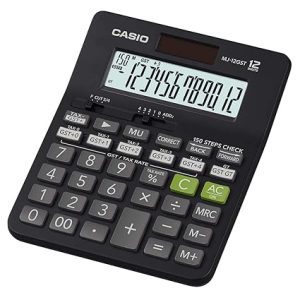Your cart is currently empty!
8th Pay Commission: Latest Updates, Salary Hike Expectations, and Implementation Timeline
The 8th Pay Commission has become one of the most anticipated developments for over 1.1 crore central government employees and pensioners in India. Employees are eager to know how much salary hike they can expect, when the recommendations will be implemented, and what other benefits may come along. Let’s dive into the latest updates and projections surrounding the 8th Pay Commission.
Formation of the 8th Pay Commission
The Government of India formally approved the constitution of the 8th Central Pay Commission in January 2025. This decision ensures continuity in the tradition of revising pay scales of central government employees roughly every 10 years.
At present, the Terms of Reference (ToR) and appointments of the chairperson and members are yet to be finalized. These steps are crucial because they define the commission’s scope, methodology, and time frame. Ministries and states are already being consulted to prepare a detailed framework.
When Will the 8th Pay Commission Be Implemented?
If history is any guide, implementation of a Pay Commission’s recommendations often takes time. For example, the 7th Pay Commission was set up in 2014, but its recommendations came into effect in 2016.
Similarly, while the 8th Pay Commission is expected to recommend salary revisions with retrospective effect from 1 January 2026, the actual implementation may take place between late 2026 and early 2028. Employees can expect arrears for the delay period, which may lead to a significant one-time payout.
Expected Salary Hike Under the 8th Pay Commission
The most discussed aspect of any Pay Commission is the salary fitment factor—a multiplier used to revise existing pay scales. Different estimates are currently being discussed:
- A fitment factor of 1.8 could mean an average 13% hike.
- A fitment factor of 1.83–2.0 could raise salaries by around 14% to 20%.
- In more optimistic scenarios, projections go as high as 2.5, which could translate to a 30% to 34% increase or even more.
Thus, depending on the final decision, employees could see anywhere between 13% to 34% salary hike, with some experts suggesting upper-end scenarios of 50% in exceptional cases. Pensioners are also likely to benefit from the same recommendations, since pension revision follows the pay structure of serving employees.
Impact on Employees and Economy
The implementation of the 8th Pay Commission is expected to improve disposable incomes, boost consumption, and support demand in the economy. However, it will also put a strain on government finances. Large arrear payouts may temporarily increase inflationary pressure, and the Reserve Bank of India may have to adjust interest rate policies accordingly.
For employees, while the salary hike is eagerly awaited, the arrears due to delayed implementation could provide a substantial lump sum benefit.
Status of DA/DR Arrears
Many employees and pensioners still expect the government to release the 18 months of Dearness Allowance (DA) and Dearness Relief (DR) arrears that were frozen during the COVID-19 period. However, the government has made it clear that these arrears will not be released, citing fiscal pressure.
Key Takeaways
- The 8th Pay Commission has been approved but its detailed framework is still pending.
- Implementation is likely to take effect retrospectively from 1 January 2026, though the actual rollout may not happen before 2027.
- Salary hikes are expected in the range of 13% to 34%, depending on the final fitment factor.
- Employees and pensioners should prepare for arrears, which could result in a sizeable one-time payment.
- No relief is expected on pending DA/DR arrears from the COVID-19 period.
Conclusion
The 8th Pay Commission promises to bring much-needed financial relief and higher disposable income to central government employees and pensioners. While the wait may stretch for a couple of years due to procedural delays, the eventual implementation—backdated to 2026—will ensure that employees receive arrears along with revised salaries.
Disclaimer
This article is for informational purposes only and is based on the latest available updates and expert projections. Final recommendations and their implementation are subject to official government notifications and decisions. Employees and pensioners are advised to follow official announcements for accurate and binding information.
Featured products
-
Airtel Xstream Fiber: High-Speed Broadband
-
Casio MJ-12GST GST Calculator
-
Casio Vintage A158WA-1DF – Retro Digital Watch
-
FirstCry – Clothing & Footwear
-
How to Talk to Anyone: 92 Little Tricks for Big Success in Relationships
-
HP 15 AMD Ryzen 3 7320U Laptop – Affordable Performance with Style
-
Ikigai: The Japanese Secret to a Long and Happy Life
-
iPhone 16 128GB – 5G Mobile Phone
-
Kama Ayurveda: Luxury Ayurvedic Skincare & Wellness










